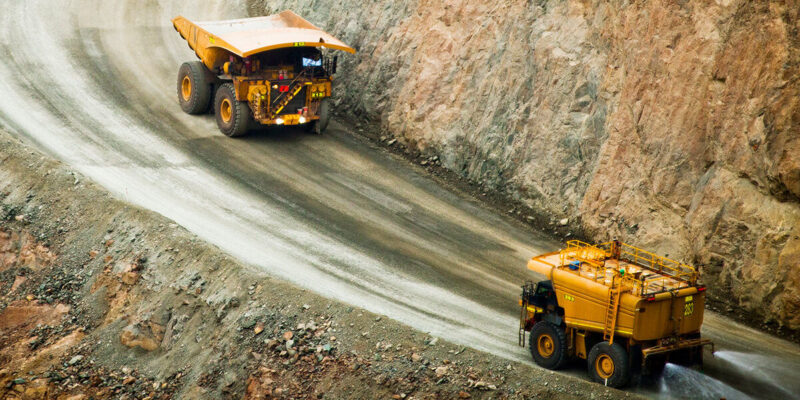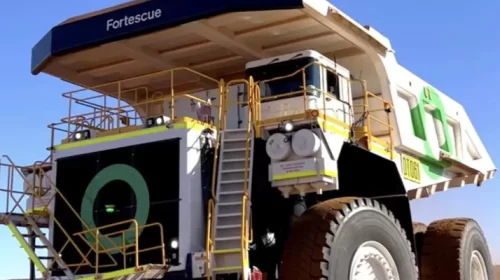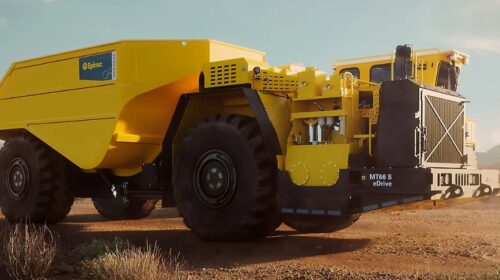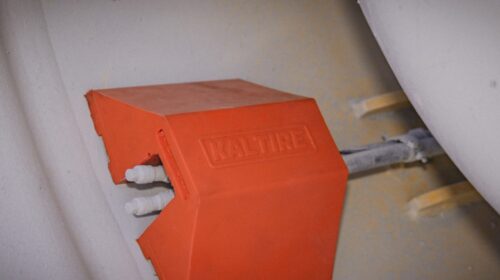Autonomous dozers, watercarts the next frontier
With a push towards zero entry operations, it’s becoming the supporting players’ time to shine.
On a mine site the stars of the show when it comes to automation have been the haulers, particularly in surface operations. With more miners pushing towards zero entry operations, it is becoming the supporting players’ time to shine.
Water carts and dozers are within that support cast. They have vital roles to fulfil and automating them will go a long way towards removing people from harm’s way.
Not only will it have safety benefits there could be major productivity benefits too.
Auto-mate CEO Daniel Poller said having people on water carts meant autonomous haul trucks often have to slow down to 20kph instead of travelling at the 60kph they were capable of.
That could be quite a productivity hit.
“We want to go to a fully automated mine,” Poller said.
“I think many believe that.
“But the big OEMs [original equipment manufacturers] don’t have the incentive to do it. The ancillary equipment is less interesting to them.”
Poller said Auto-mate looked at the world differently.
“To us automating a water cart can have the same value as automating a haul truck,” he said.
“A water cart is a good example. Basically, it is a truck doing a simple activity. The challenge is how do we achieve a better process that saves water? How do we use AI [artificial intelligence] to make the process better?”
In theory it should be simple to automate a water cart. Plug a truck automation package in and tell it to water from one GPS coordinate to another.
Poller believes there is a better way to do it, although it throws up a couple of questions.
The first is how to determine how much dust there is? That determines where the water has to be put.
The second is can automation be taken even further, can it determine where the water is likely to be needed before the dust has a chance to rise?
“One way is to sense the amount of dust out there,” Poller said.
“For that you’d be looking at dust sensors or you maybe you can use LiDAR to determine how much dust is in the air.
“From that you can deduce how to water.
“I think the first autonomous water carts will be unsophisticated ones with a GPS saying ‘water at these points’.
“Then you can look at using technology to do it better.
“First we figure out where there is dust and put water there. Then go to how much water.
“Then we can go to looking at what the temperature is, what the evaporation is and work out where, and how much, we have to water, in advance.
“I think that will be a three to five-year process to where we are ready to water in advance.”

Watercarts are a new area of focus for Auto-mate.
Dozers are a different story.
One of Auto-mate’s major shareholders, Israel Aerospace Industries has developed autonomous dozing technology for road building.
Poller said Auto-mate would be adapting that technology to the mining industry.
“What you’ll see from us going forward is a large push on the autonomous dozer,” he said.
“From a tele-remote only aspect; we’ve found it is hard to perform some of the dozing tasks well, which is why we’re going down the AI route.
“A dozer is a dozer. The tasks a dozer is doing, whether in mining or construction, are not very different.”
Australian coal operators widely use dozers in their production efforts. Iron ore, the other major user of dozers and automation does not use the machines quite to the same extent.
“There is interest from iron ore players in autonomous dozers but that’s more about getting people out of harm’s way,” Poller said.
“Coal operators are also keen.
“In Indonesia some of their nickel miners mostly use dozers.
“We’ve had conversations with some of them and their driver for automation is around safety.
“Some are operating 80-90 dozers and have some major safety issues.”
Poller said the conversations Auto-mate was having with miners were around both water carts and dozers.
He said retrofitting automation to these pieces of ancillary equipment would be important too.
“The mines don’t want to buy new equipment to get automation,” he said.
“These pieces of equipment are not that critical. They tend to be a little bit older.
“That’s why retrofitting will be very important.”
Retrofitting may be attractive for mine rehabilitation where the use of ageing dozers extends their useful life while the use of automation ensures the safety of both asset and operator in the event of a geotechnical failure or even driver error.
“Of course, these are not the only opportunities autonomous technologies provide,” said Poller, “the industry has yet to address other challenging equipment such as Graders and Front End Loaders.”
![]()





